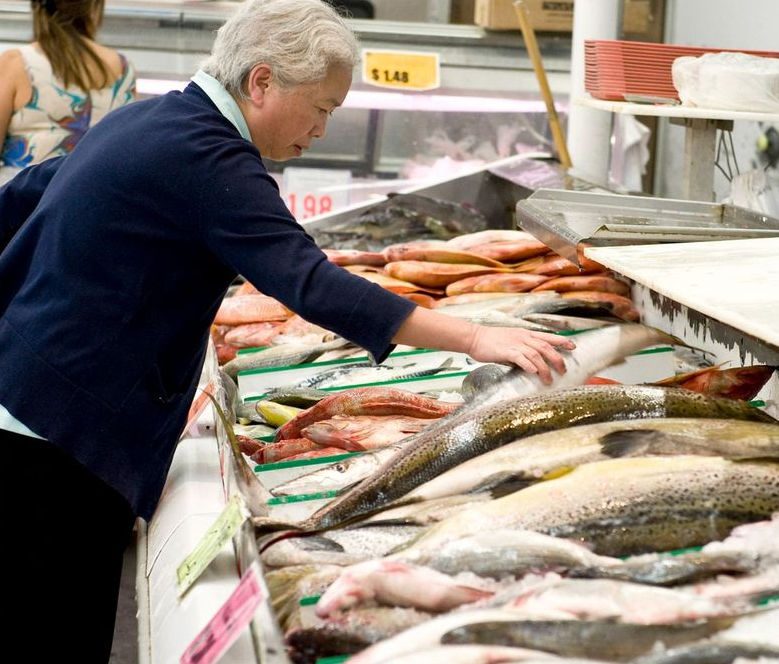
In today’s food-conscious world, sourcing matters. Customers aren’t just looking for delicious meals—they want assurance that their food was sourced responsibly. Nowhere is this more critical than in seafood. Overfishing, habitat destruction, and unethical labor practices have made ethical seafood sourcing a significant focus in the restaurant industry. For forward-thinking restaurateurs, ensuring the traceability and sustainability of seafood is a powerful way to build trust and loyalty.
Chef Shajahan M Abdul, founder of Restro Consultants Pvt Ltd (RCPL), says, “Ethical seafood sourcing is not just about the environment—it’s about brand integrity. Customers trust restaurants that care about what’s on the plate and how it got there.”
Seafood is among the most vulnerable food categories in terms of sustainability. Unsustainable fishing practices deplete marine populations, damage ecosystems, and harm local communities. For green-minded diners, the method and location of seafood catch or farming significantly influence their dining decisions.
Chef Abdul emphasises, “When a customer orders a prawn or seabass dish, they’re not just buying flavor—they’re investing in your restaurant’s values. Ethical sourcing gives them confidence in your commitment to doing the right thing.”
How Ethical Sourcing Builds Customer Trust
Restaurant consultants agree: transparency builds loyalty. Customers today are more informed than ever. They research the origins of food, question supply chains, and make choices based on sustainability.
Here’s how ethical seafood sourcing directly boosts trust:
1. Transparency and Traceability
Ethical sourcing requires traceability—knowing exactly where the seafood was harvested, by whom, and under what conditions. Sharing this information with customers adds transparency that builds lasting trust.
Restro Consultants Pvt Ltd (RCPL) helps restaurants establish clear sourcing protocols and build relationships with certified suppliers. Chef Shajahan M Abdul says, “Traceability is your proof of promise. It reassures customers that your seafood isn’t just good—it’s good for the planet.”
2. Avoiding Greenwashing
Many restaurants claim to be “sustainable” without providing evidence to support their claims. Ethical sourcing, backed by certifications such as the Marine Stewardship Council (MSC), the Aquaculture Stewardship Council (ASC), or local fishery partnerships, prevents greenwashing and demonstrates a genuine commitment.
Chef Abdul points out, “Real sustainability comes with receipts. Certifications, supply chain audits, and supplier transparency make all the difference.”
3. Aligning with Customer Values
Consumers—especially Gen Z and Millennials—prioritize ethical sourcing and environmental responsibility. Offering responsibly caught or farmed seafood directly aligns your brand with their values.
Restaurant consultants often advise highlighting these sourcing commitments in menus and marketing. RCPL frequently develops “sustainability stories” for menus, helping customers understand the journey of each dish.
Steps to Implement Ethical Seafood Sourcing
Restaurants can adopt sustainable sourcing practices by taking a few intentional steps. The transition became smooth and impactful with the guidance of experts like Chef Shajahan M. Abdul and the Restro Consultants Pvt. Ltd. (RCPL) team.
1. Audit Your Current Supply Chain
Begin by reviewing the origin of your seafood. Is it traceable? Is it certified? Are the fishing or farming methods sustainable?
RCPL offers seafood sourcing audits to assess risks and recommend verified suppliers. Chef Abdul explains, “You can’t change what you don’t know. Audits are the foundation for ethical improvement.”
2. Partner with Certified Suppliers
Look for vendors who provide seafood certified by globally recognised programs, such as MSC, ASC, or local sustainable fishery cooperatives. These partnerships ensure your seafood meets both quality and ethical standards.
Restaurant consultants recommend building long-term supplier relationships to ensure consistency and mutual accountability.
3. Educate Your Staff and Guests
Train your team to understand and communicate your sourcing efforts. Customers often ask servers about origins—ensure they’re prepared with honest, informed answers.
Chef Abdul stresses, “Front-of-house training is just as important as kitchen operations. If your staff doesn’t understand your mission, customers won’t either.”
Marketing Your Ethical Commitment
Once you’ve taken steps toward ethical seafood sourcing, please don’t keep it a secret. Ethical practices build emotional loyalty—but only if customers know them.
1. Menu Messaging
Highlight responsibly sourced dishes with tags like “Ocean-Friendly,” “Sustainably Sourced,” or “Certified Seafood.” For transparency, include supplier names or fishing regions.
Chef Shajahan M Abdul encourages restaurants to go deeper by sharing sourcing stories on table tents, digital menus, or scannable QR codes.
2. Use Social Media to Tell the Story
Behind-the-scenes content, such as your sourcing process, partnerships with local fishermen, or certification badges, builds customer confidence. Restro Consultants Pvt Ltd (RCPL) helps restaurants create strategic storytelling campaigns around their ethical sourcing journey.
3. Community Engagement
Participate in ocean clean-up events, sustainable seafood festivals, or marine conservation causes. These community actions further strengthen your restaurant’s ethical image.
Overcoming Challenges in Ethical Seafood Sourcing
Adopting ethical sourcing isn’t without its challenges. Price, availability, and education can be barriers—but not roadblocks.
Higher Costs: Sustainable seafood may be more expensive. However, customers are often willing to pay a premium for ethics. RCPL helps restaurants price menus strategically to maintain margins while staying accessible.
Limited Access: Not all regions have reliable certified suppliers. In such cases, restaurant consultants recommend collaborating with vetted local fishermen and establishing supplier cooperatives.
Changing Customer Perception: If your guests are unfamiliar with lesser-known but sustainable seafood options, educate them through tastings and specials.
Ethical seafood sourcing isn’t just a trend—it’s the future of responsible dining. By building transparent, traceable, and trustworthy supply chains, restaurants can win customer loyalty while protecting marine ecosystems.
As Chef Abdul says, “Seafood done right tells a story of care—from the ocean to the plate. When customers trust your sourcing, they trust your brand.”
With expert guidance from restaurant consultants at Restro Consultants Pvt Ltd (RCPL), any restaurant—large or small—can integrate ethical seafood sourcing into its operations and reputation.
Chef Abdul © Copyright 2024. All rights reserved.